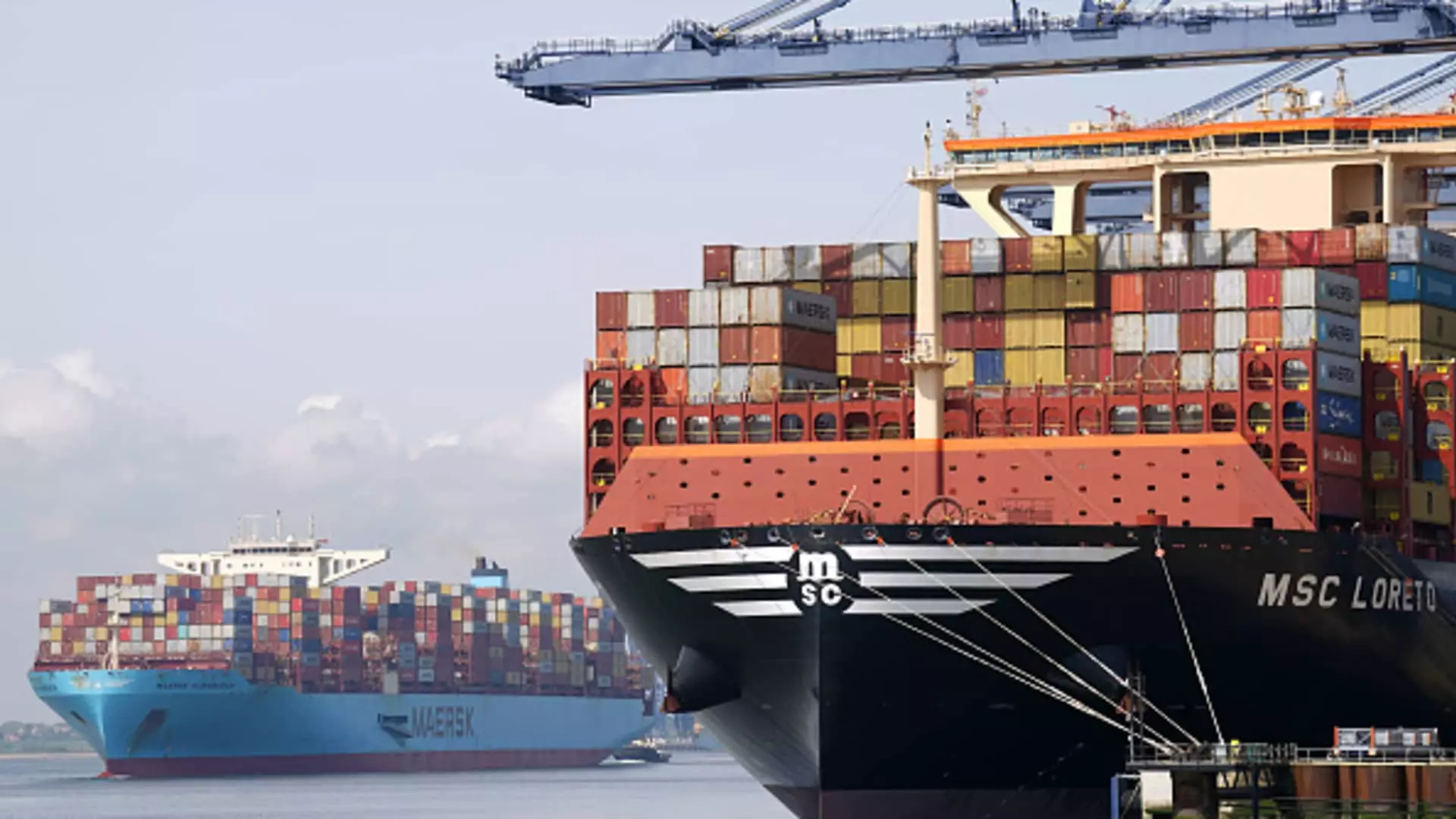As we launch into the first quarter of 2025, investors find themselves enveloped in a haze of unpredictability, largely stemming from the policy maneuvers of the past. Notably, the tariffs implemented under the Trump administration loom large, creating tremors throughout global markets. What was once a straightforward trade landscape has metamorphosed into a convoluted maze of threats and retaliatory measures, unsettling even the staunchest optimists. The looming shadow of escalating duties has translated into volatility that cannot be ignored, presenting dire implications for both investors and companies alike.
Tariffs are more than just taxes levied on imports; they are instruments of economic manipulation that reverberate across industries. When countries engage in tariff battles, it’s not just about numbers on a balance sheet; it’s about trust, stability, and the foundational principles of international trade. This uncertain climate has instilled a sense of fear among investors who are grappling with the potential ramifications that could compound in devastating ways.
Companies on Edge: An Earnings Preview
Major companies are now operating under the specter of impending earnings reports, which are likely to expose them to increased scrutiny. The recent performance of luxury titan LVMH serves as an eye-opener, indicating that even high-end brands are at risk from reduced consumer spending among their aspirational clientele. With such brands often viewed as bellwethers of economic optimism, their hesitance to provide quantifiable impacts signals a broader panic that many may be reluctant to admit.
This trepidation is echoed in the semiconductor sector as well, with companies like ASML warning that tarrifs are fuelling uncertainty around demand. Low visibility into future demand can crush confidence, and when combined with tariff implications, it turns caution into paralysis, leaving investors at a loss for direction.
The Broader Implications for Core Industries
Inherently connected to the global marketplace, industries like shipping and energy are at the epicenter of these tariff-induced shifts. Take, for example, Danish shipping behemoth Maersk, which is scheduled to unveil its earnings soon. Analysts predict that the company’s first-quarter EBITDA will tumble significantly from prior figures, reflecting the harsh realities of a trade environment distorted by tariffs. The transport sector is acutely aware of its interdependence with trade policies, making any uncertainty unbearable to navigate.
Meanwhile, oil and gas companies such as Shell are simultaneously engaging in damage control over production forecasts and investor expectations. The announcement of diminished LNG production due to unplanned maintenance further complicates an already volatile sector. Investors are essentially walking a tightrope; they are well aware that while Shell may be adept at managing cash flows under pressure, it cannot tame the unpredictable forces of the oil market itself.
Automotive Firms Caught in the Crossfire
The automotive industry stands as another front where certainty has become a casualty in this tariff war. German manufacturers like Volkswagen feel trapped between conflicting market demands and rising costs. The added burden of a 25% tariff on foreign cars hitting the U.S. market has sowed fear among carmakers exporting vehicles to America, intensifying the stakes for these businesses. Analysts project a mixed bag for Volkswagen, likely forecasting slight revenue increases yet declining profits.
When faced with escalating tariffs, businesses often resort to cost-cutting measures and product reshaping; however, these short-term solutions rarely address the core issue: a market rife with uncertainty. The automotive sector is not merely affected by tariffs; instead, it is contending with a complicated web of regulations, market demands, and consumer sentiment, all of which are exacerbated by rising geopolitical tensions.
Healthcare Industry: A Looming Crisis
The pharmaceutical sector is not immune to this upheaval either. With the Trump administration underscoring an investigation into how importing certain drugs impacts national security, many companies find themselves on shaky ground. For Europe’s pharmaceutical powerhouse Novo Nordisk, which heavily relies on U.S. sales for its popular obesity and diabetes treatments, this scrutiny could herald an era of hit-or-miss fortunes. As speculation swirls regarding potential tariffs on drugs, stakeholders hold their breath, anticipating the impacts on market access.
Weighing the potential consequences of such policies against corporate performance adds yet another layer of complexity for investors. The healthcare industry often prides itself on stability and predictability; however, the instabilities caused by tariffs threaten not just individual firms but the entire framework of healthcare delivery and accessibility in the U.S.
In the final analysis, as investors sift through the rubble of earnings projections, the overshadowing effect of tariffs lingers. Each corporate response becomes a litmus test for broader market sentiment, yet the implications remain deeply intertwined with the unpredictable maneuvers of geopolitical actors. Despite the uncertainties, one thing is clear: the ramifications of tariff wars will echo for years to come, serving as a grim reminder of the fragile state of global commerce.

